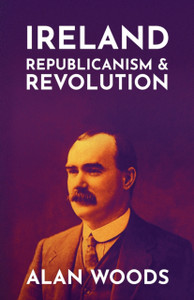
Why did ‘Come Out Ye Black and Tans’, a song written by Dominic Behan in the early 1960s and recorded by The Wolfe Tones in 1972, top the download charts in 2020? And why was another Wolfe Tones song, ‘Celtic Symphony’, at the centre of a ‘confected controversy’ and media frenzy after the Irish women’s soccer team were videoed singing the chorus in their dressing room in October 2022?
‘Come Out Ye Black and Tans’ is the starting point of Stan Erraught’s powerful account of the place of popular music, particularly ‘rebel songs’, in Irish society and politics. Erraught tells us about the origins and political significance of a wide range of popular music, from traditional and contemporary folk, through show bands, rock, punk, and hip hop. The book also looks at attempts to counter the popularity of rebel songs through the official adoption of the Cranberries song ‘Zombie’ at some sporting events. The use of popular music as the soundtrack of various Northern Ireland Office campaigns is also critically reviewed.
The band Kneecap, ‘rapping for the most part in Irish and unabashedly republican in their politics’, are discussed at length, given that they are ‘the most popular and influential rap act to emerge from Ireland this century’. While there are calls to ‘defund’ Kneecap – an approved grant was personally vetoed by Kemi Badenoch as Business Secretary – they have received a ‘glowing reception’ by mainstream commentators. This contrasts with The Wolfe Tones: ‘How come a bunch of septuagenarians with banjos and whistles can cause such apoplexy?’
The book concludes with a discussion of the rise of the far right in Ireland and the part music has to play in the struggle against racism.






